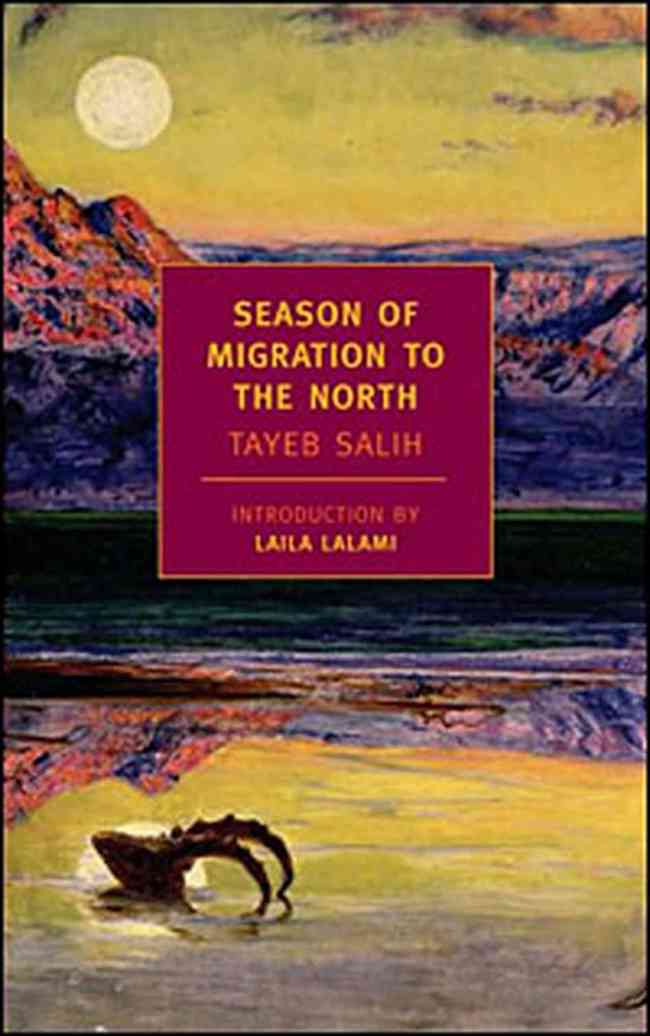Season of Migration to the North by Tayeb Salih was not what I expected it to be at all. I did have high expectations for the story because people who I talked to who are well endowed (or just well enough) in postcolonialism recommended the novel on the top of their lists, but I didn’t exactly know what the story was going to entail.
I did like Season of Migration to the North. I loved it because it challenged me a lot, but I was still able to keep up with it. I didn’t just give up because the story got hard to follow, which it does. The use of narration by Salih is so complex and layered that I found myself reading the story and then having to back track to see who was speaking.
Keeping with the theme of postcoloniality, this book is so clever in how it channels colonialism. The use of, or I guess, critique of colonialism in the novel is found in the character, Mustafa Sa’eed. His character is seen conquering women who he forms relationships with, who then in term, commit suicide after the courtship. The tragedies that were Jean Morris and Hosna Bint Mahmoud were the exceptions, because Mustafa Sa’eed, could never truly conquer them. Jean Morris tortured Mustafa, turning him weak and helpless. Their abuse is descriptive in the novel and disturbing, but in the end, her murder is what finally, but never truly, releases him for their bond together. Rebelion against the dominant, turned the dominant power, which is what Mustafa was a symbol of, power, into the conquerable. So he killed her, to try and rid himself of that. All the other women, in their deaths, died, still being submissive under his lure, regardless if the relationship ended or not.
Hosna Bint Mahmoud, was a special case, because she was his widow. Now the dominant power is gone, but yet he still had a clasp around her neck. She refused remarriage. She threatened murder. And in the end, not only took her own life, but her new husband’s life in a vicious attack.
The unnamed narrator (interesting his lack of name) is returning home to his tribe in Africa after studying in Europe for a couple of years. My absolute favorite passage of this book, is actually in the very beginning. After this I was hooked. The village welcomes the narrator with open arms, and starts questioning the people over in Europe, saying things like they were glad he didn’t bring home an uncircumcised woman, or floosy. They bring up harsh stereotypes about women and men living in Europe. This is what the narrator thinks of those living in Europe.
“‘Yes, there are some farmers among them. They’ve got everything– workers and doctors and farmers and teachers, just like us.’ I preferred not to say the rest that had come to my mind: that just like us they are born and die, and in the journey from the cradle to the grave they dream dreams some of which come true and some of which are frustrated; that they fear the unknown, search for love and seek contentment in wife and child; that some are strong and some are weak; that some have been given more than they deserve by life, while others have been deprived by it, but that the differences are narrowing and most of the weak are no longer weak.”
That passage made me put the book down for a brief second. Didn’t you stop and pause everything you were doing after reading that passage? This general statement about the life of people who we crush with prejudices and stereotypes are just trying to get by and survive and live, just like we are. Whether they are here at home or on the other side of the world.
Season of Migration to the North is definitely a good read. The ending in particular struck me. That might just be because, it was the most connected I have ever felt to a story, because that is what I am going through right at the moment. I won’t give away the end, but if you read the novel, or have read it, the very last chapter, resonates with you. Imagine finally deciding to take your life back, and it all just being washed away.

